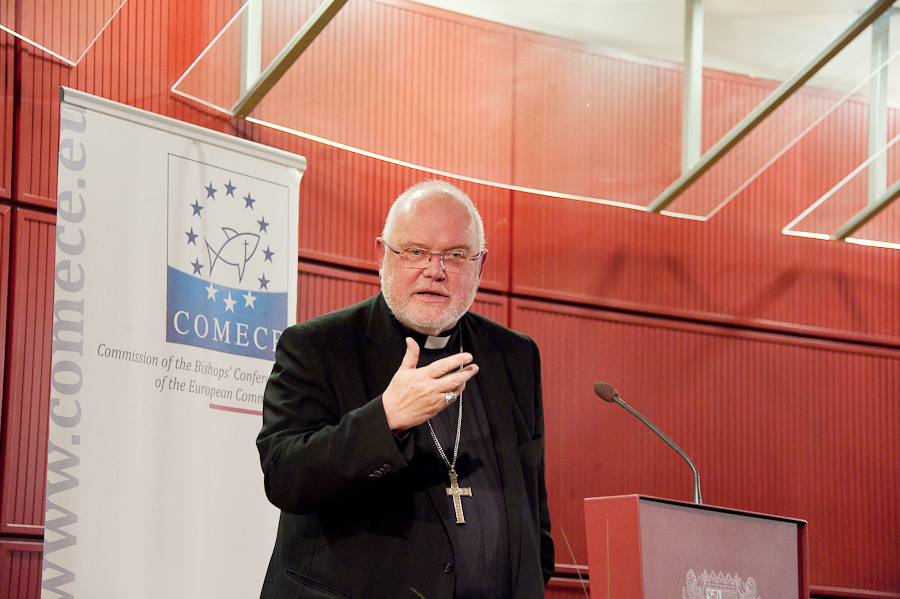22nd January 2014
Economics and the Pope


The World Economic Forum opens every year in January in the Swiss resort of Davos. Britain, as usual, will be sending a strong delegation led by the Prime Minister. It is one of the principal opportunities during the year when government, business, journalists and thinkers can gather to discuss the state of the world’s economy – and, hopefully, find ways of improving it for the benefit of the world’s citizens.
The Holy See is not normally considered a Davos player. This year, things are different. Pope Francis generated a storm of comment with his recent apostolic letter Evangelii Gaudium, in which he launched a challenge to business and governments to rethink the globalised economic systems under which we live, with particularly sharp criticism for what he called “the economy of exclusion and inequality”.
Some even accused the Pope of being a Marxist. But as the Pope’s own ‘Marxist’, Cardinal Reinhard Marx of Munich and Freising, explained in a New Year essay: “The call to think beyond capitalism is not a struggle against the market economy or a renunciation of any economic reason”, but an invitation from the Pope to “reorder priorities” and search for “an integral approach” putting human dignity first.
Given the global impact of the Pope’s apostolic letter, it is perhaps not surprising that the Executive Chairman of the WEF, Professor Karl Schwab, invited the Pope to address participants at Davos, especially given that this year’s theme is ‘The Reshaping of the World: Consequences for Society, Politics and Business”. Through his invitation, Schwab was recognising what most readers of this blog already know: that it is not just banks, business or big government that have a stake in the management of economic systems, but the rest of society too, which includes the world’s great religions.
The City of London has been working hard in recent years to attract and develop Islamic Finance, which is based on Islamic economic values. The Archbishop of Canterbury is at the forefront of debates in the UK about the proper role of a banking sector in society. The Pope, too, is therefore engaging in economic debate with his global responsibilities in mind, building on Benedict XVI’s ground breaking encyclical Caritas in Veritate of five years ago.
No Marxist would say, as the Pope did in Evangelii Gaudium, that: “business is … a vocation, and a noble vocation, provided that those engaged in it see themselves challenged by a greater meaning in life”. Addressing Davos – in his message read out by Cardinal Turkson on 21 January – Pope Francis urged politicians and businessmen to follow “an ethical approach which is truly humane”, to ensure “that humanity is served by wealth and not ruled by it”. Few would disagree, especially after the economic crises of the past several years. Who says business cannot serve the common good?